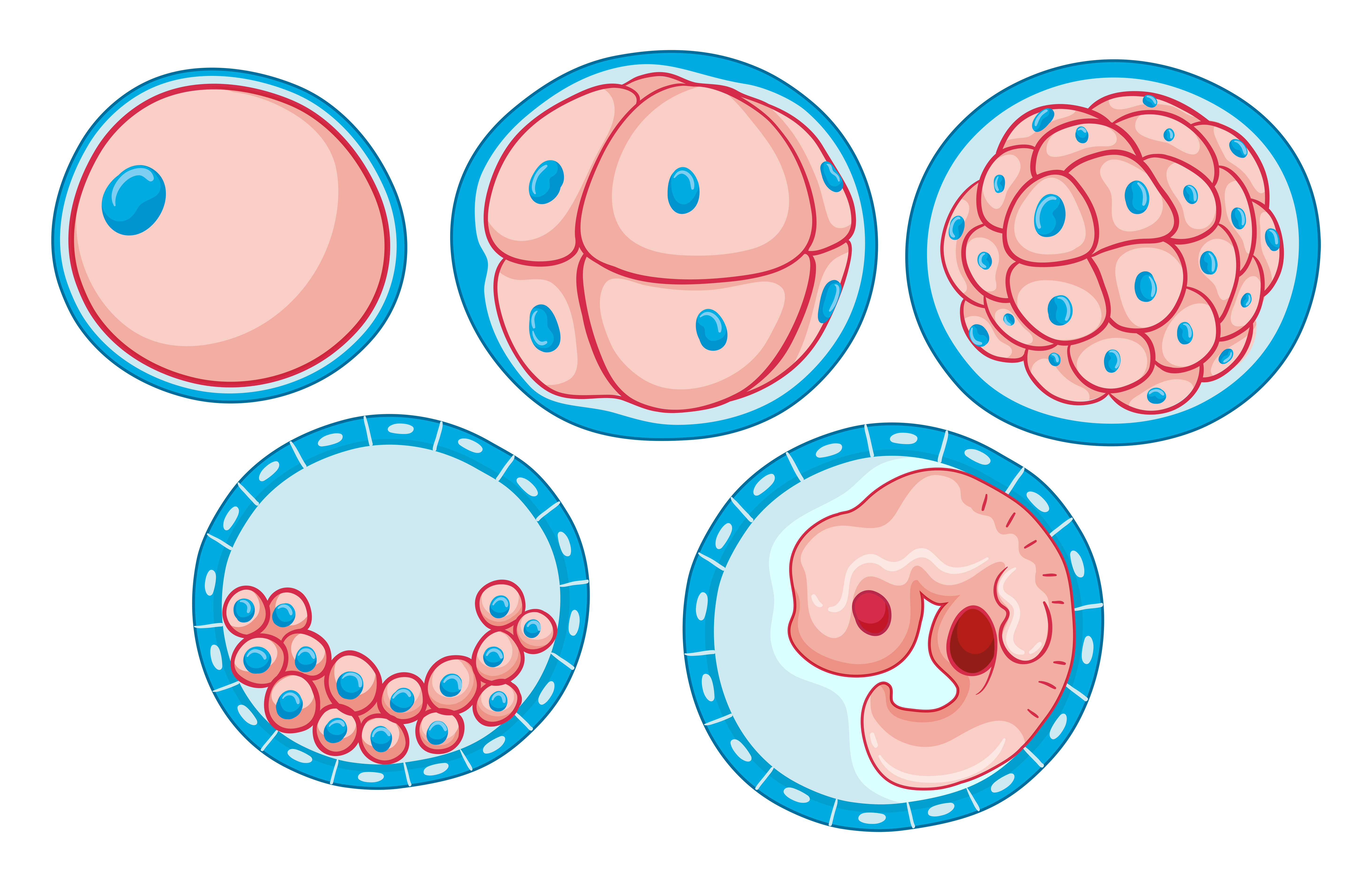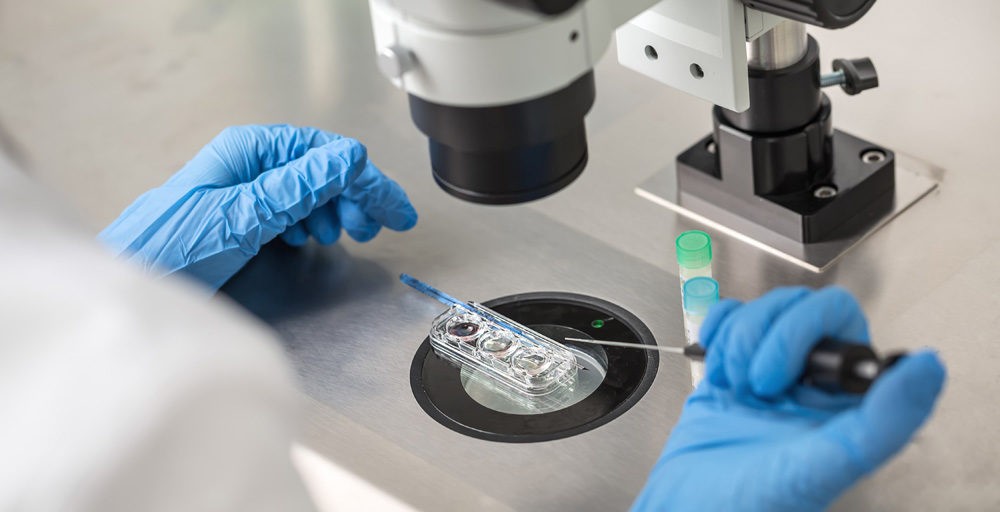“Apparently, by 30, the quality of our [female] eggs reduces. Ladies, would you consider freezing your eggs? Until Mr. Right comes?’
This 20-word question by model and businesswoman Uriel Oputa stirred an online frenzy on a globally controversial subject—egg freezing. The question was posted alongside a video detailing Uriel’s ‘egg-freezing’ journey at a fertility clinic to ‘raise awareness’ about the medical procedure.
Why did she choose to freeze her eggs? The answer is straightforward — a fear of having multiple children. Uriel explained that her mother had to raise five kids without a husband. Therefore, freezing her eggs became the optimal choice to ‘secure her future.’
All over the world today, more women are becoming like Uriel. Women now have effective rights and abilities to make more efficient decisions about their bodies and reproductive systems. Science and technology have offered women the chance to preserve their fertility through egg freezing.
But what is egg freezing?
The Human Fertilisation and Embryology Authority defines egg freezing as preserving a woman’s fertility so she can try to have children later. The fertility preservation process has only gained popularity recently but has been ongoing for nearly a century. According to a 2020 fertility study, fertility preservation can be dated back to the 1950s, when a woman birthed a child after being inseminated with frozen sperm. The potential for female fertility preservation became evident in the 1980s with the birth of Zoe in Australia through a frozen embryo transfer. A few years later 1986, a set of twins was also born, further highlighting advancements in this field.
Although the effectiveness of egg freezing was confirmed through the birth of the twins, the egg freezing process remained the most complicated fertility procedure as opposed to embryo freezing and sperm freezing, which went on to become clinically routine fertility procedures.
Egg Freezing and Embryo Freezing: What’s the Difference?
A sperm fertilizes an egg to create an embryo, while a harvested egg is frozen before fertilization. Both processes begin similarly, with hormone injections stimulating the ovaries to collect viable eggs. The main difference is that embryos are fertilized before being implanted into the woman. According to an article on the pros and cons of freezing eggs, these steps ensure an egg becomes an embryo.
- The embryo freezing process starts similarly to the egg freezing process. First, you must get hormone injections to stimulate the ovaries and produce several viable eggs.
- The ultrasound process will extract the eggs.
- Next, the sperm will fertilize the extracted eggs. This process could take anywhere from 16 to 20 hours.
- Successfully fertilised eggs will develop into embryos. An incubator will be used to nurture the embryos and facilitate their growth.
- Once they are ready, your doctor will freeze them using either slow freezing or vitrification.
- When thawed, vitrification enhances the survival rate of the embryos.
- Store the embryos in liquid nitrogen until they are ready for use.

Process of Growing an Embryo via Vector Stock and Pinterest
What’s the success rate like?
To begin the egg-freezing process, you must have all the details in your palm, especially as a Nigerian woman. According to Dr. Abayomi Ajayi, CEO of Nordica Fertility Clinic, here are the success statistics concerning egg freezing in Nigeria.
- Women aged 21–35 are increasingly favouring egg freezing, as this represents their highest fertile window.
- Women are born with around two million eggs. And by 30, a woman could have less than 15 per cent of her eggs left. Women’s fertility begins to decline as soon as they hit their 30s, and for men, the decline starts at 40.
- About 40 to 60 per cent of women who undergo in vitro fertilisation using previously frozen eggs successfully conceive.
- No governing laws support IVF in Nigeria (except the guidelines launched recently by the Lagos State Government in conjunction with the Association for Fertility and Reproductive Health). Yet, many clinics model their approach after the United Kingdom, where the Human Fertilization and Embryology Authority serves as the regulatory body.
How much does it cost to ‘freeze eggs’ in Nigeria?
According to Dr. Ajayi via The Guardian, in 2022, the cost of egg freezing ranged from ₦250,000 to ₦500,000, depending on how long the eggs remained in the facility. Dorathy Walter, a banker in Lagos, and Tunbi Adekoya, diagnosed with breast cancer, reported paying 350,000 and 400,000 naira, respectively, to preserve their eggs. However, economic inflation is likely to have increased prices in 2023.
The Process
While speaking to Dr Joel Akande, an embryologist, gynaecologist, and fertility specialist at The Fertility And Gynaecology Centre, he explained the egg-freezing process as a technical process that involves stimulation of the ovaries with fertility drugs and collection of eggs for freezing.
“Egg freezing is a step away from full IVF. Eggs may not yield as expected, and it’s a surgical process with many injections and medications to take, not to mention anaesthesia.”
Women aged 21–35 are increasingly opting for egg freezing, as this represents their highest fertile window. Women are born with around two million eggs, but by 30, a woman could have only 300,000 (less than 15 per cent) of her eggs left. Women’s fertility begins to decline as soon as they hit their 30s, and for men, the decline starts at 40.
Five significant steps in the egg-freezing process are crucial to its success:
Initial Consultation
The journey begins with a consultation with a fertility doctor. Discussions centre around the individual’s reproductive objectives, medical history, and reasons for pursuing egg freezing. In this process, healthcare providers conduct a series of tests for infectious diseases such as hepatitis, HIV, or other conditions that can be transmitted.
Dr. Joel does not recommend the egg-freezing process for every person who walks through the door.
“…We don’t encourage egg freezing for just anyone and everyone. We advise embryo freezing instead. The only exception is for candidates who are to undergo cancer treatment or persons with rapidly diminishing fertility reserves or any other condition that may interfere with the person’s future fertility.”

A doctor is about to proceed with a medical procedure via RF Studio and Pexels
Ovarian Stimulation
Once the consultation is completed and the patient has been cleared, the ovarian stimulation process begins. Fertility medications such as Clomifene citrate (Clomid) and metformin stimulate the ovaries and enhance the development of numerous eggs during a single menstrual cycle. Regular monitoring ensures that egg retrieval occurs at the appropriate time.

Fertility Medication via Anna Schvets and Pexels
Egg Retrieval
The egg retrieval process is a minimally invasive outpatient sedation operation. A tiny needle is inserted under ultrasound guidance to aspirate the follicular fluid containing the eggs.

The egg retrieval process via Bizbangboom
Laboratory Processing
After retrieval, the eggs are promptly transported to the laboratory. In this setting, they undergo cryopreservation, which involves gradual cooling to sub-zero temperatures to pause biological activity.
A doctor inserting newly retrieved eggs into a chamber via the National Cancer Institute
Storage and Future Use
The frozen eggs are kept in liquid nitrogen-filled containers until the person is ready to use them. When the time comes, the frozen eggs are thawed and fertilised with sperm, and the embryos produced are transported to the uterus via in vitro fertilisation (IVF).
Injecting an Egg Cell via The Conversation
The Benefits
The main benefit of egg freezing, as highlighted by Dr Joel Akande, is fertility preservation. Women can maintain their fertility by freezing eggs at a phase of life when fertility is at its highest. This is especially advantageous for people undergoing medical treatments that may influence fertility, such as chemotherapy or radiation. Preserving your reproductive potential helps ease concerns about the biological clock. This mental serenity can positively influence emotional well-being and marital dynamics.
Pregnant black woman via Getty Images
Fertility preservation is crucial, and egg freezing empowers women by:
1. Making informed and responsible choices about family planning and life decisions.
2. Providing flexibility to align family planning with education or career pursuits, safeguarding fertility.
3. Supporting collaborative family planning for couples.
4. Allowing joint decisions on the timing of children, considering both partners’ goals and desires.
A black family via Anna Schvets and Pexels
While egg freezing provides women with the opportunity to have reproductive options in cases of health challenges or when they’re not ready to take the leap, there are many risks and factors to consider before diving into the process of egg freezing.
The Downsides of Egg Freezing
While egg freezing is typically a safe and effective treatment, it has dangers and obstacles like any medical intervention. Individuals contemplating egg freezing should be informed of potential pitfalls and problems. Here are some things to think about:
Limited Shelf Life
While egg-freezing technology has significantly advanced over the years, there is still some uncertainty about the maximum duration for which eggs can remain viable. The long-term effects of extended storage are still being studied. However, in Nigeria, the estimated shelf life, according to the Olive Branch Clinic, is ten years.
Risk of Ovarian Hyperstimulation Syndrome (OHSS)
Ovarian stimulation medications used to encourage the ovaries to produce multiple eggs may, in rare cases, lead to ovarian hyperstimulation syndrome. This condition can cause swollen and painful ovaries, fluid accumulation in the abdomen, and other symptoms.
Infection or Bleeding
The egg retrieval procedure, while minimally invasive, carries some risk of infection or bleeding. The risks are generally low but should be discussed with the healthcare provider.
Financial Costs
Egg freezing can be expensive, and costs are associated with the initial procedure and ongoing storage. Financial considerations should be part of the decision-making process.
Low Egg Yield
The number of eggs retrieved during the egg retrieval procedure can vary. Some individuals may produce a lower-than-expected number of eggs, impacting the overall success rate.
No Guarantee of Pregnancy
Egg freezing increases the likelihood of future pregnancy but does not guarantee success. The age at which the eggs are frozen, the number of eggs retrieved, and individual fertility factors all play roles in the chances of a successful pregnancy.
Egg freezing has come to be a revolutionary option, allowing women to extend their reproductive cycles and handle life decisions with greater freedom. The egg-freezing technique continues to bring hope and empowerment to people hoping to preserve their fertility for the future as reproductive care develops. We recommend consulting with reproductive professionals to explore your options and make informed decisions tailored to your specific circumstances before deciding to freeze your eggs.

